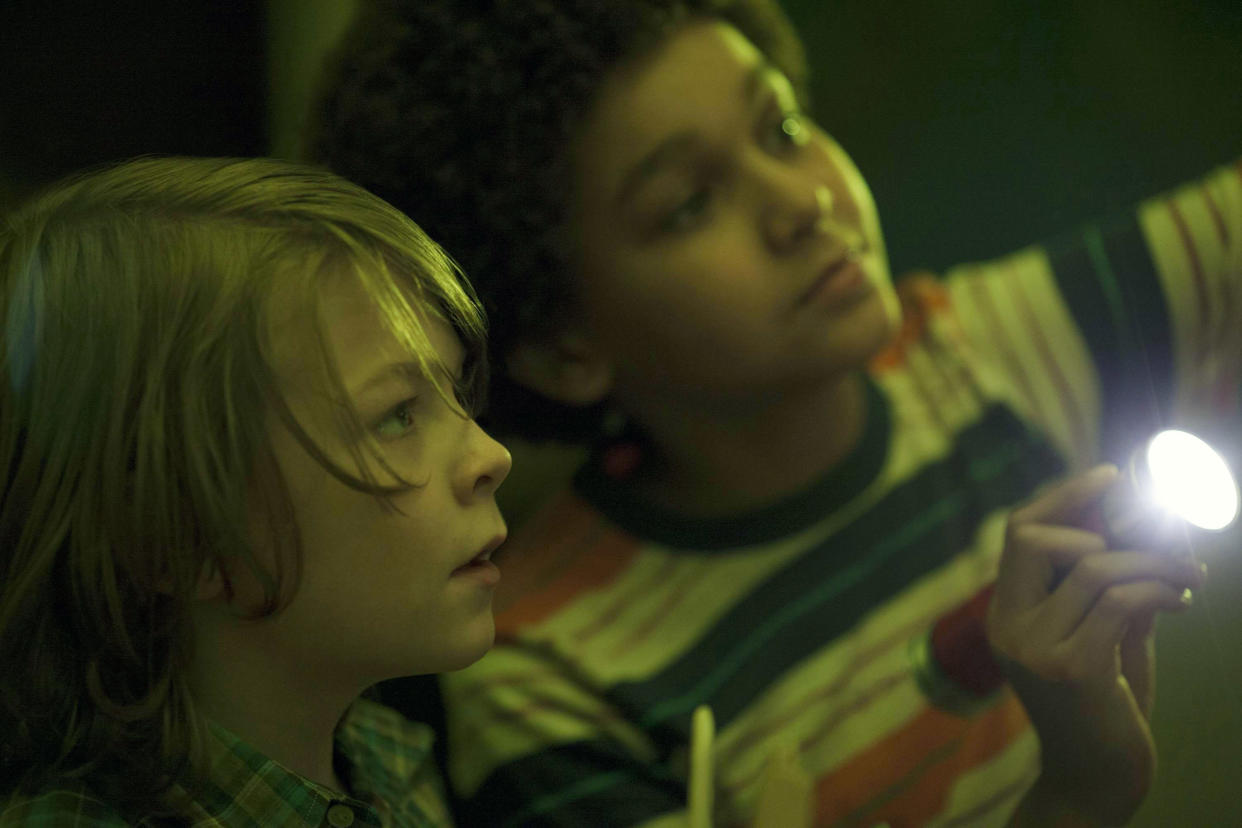'Wonderstruck' director Todd Haynes on making a movie for kids and his lost Shakespeare debut

Even as a child, Todd Haynes made movies for grown-ups. “My first film, which I made when I was 9, was an adaptation of Romeo and Juliet,” the writer-director confesses to Yahoo Entertainment while chatting about his newest feature and first honest-to-god kids’ movie, Wonderstruck. “Franco Zeffirelli’s 1968 film version made such a crazy-deep impression on me. There’s such a romantic and erotic quality to that movie; it was a little advanced for me, but that’s why it stayed with me and made me want to learn more about Shakespeare.”
It also inspired him to pick up a Super 8 camera and, with his parents’ help, direct and star in his filmmaking debut. “I played all the roles except Juliet,” Haynes says, laughing. “I tried a double-exposure scene where I dressed up as her too, but it was a little too complicated.” Haynes even staged his first-ever action sequence — the duel of blades between Mercutio and Tybalt — and fought…himself. “I would be dressed as Tybalt, and my dad held the sword on one side of the shot. Then we’d cut to the other side, and he’d hold Tybalt’s sword and I’d be dressed as Mercutio dueling it out.” When it came time to screen his masterpiece for an audience — accompanied by a tape-recorded soundtrack featuring excerpted from Shakespeare’s text and bits of Nino Rota’s Romeo and Juliet score — Haynes enforced a strict no-kids policy, inviting his classmates’ parents only. “I thought it was too mature for kids my age. I was probably insufferably pretentious as a child!”

Haynes would like it to be known that kids are more than welcome to attend screenings of the PG-rated Wonderstruck when it opens in limited release on Friday. They can even bring their parents … provided that doesn’t embarrass them. Adapted from Brian Selznick’s 2011 novel, the film presents an initially bifurcated narrative that jumps between 1927 and 1977, building to an emotional climax that brings those parallel tracks together. In the ’70s, young Ben (Oakes Fegley, the star of Disney’s somber Pete’s Dragon remake) ditches his small Minnesota town to come to the Big Apple to search for his missing father, while 50 years earlier, young Rose (Millicent Simmonds) embarks on her own New York adventure. Despite existing in different time periods, these kids have several things in common, most notably the fact they’re both deaf; Rose was born without hearing, while Ben only recently lost his in an accident.
Selznick’s story put Haynes in mind of another cinematic favorite from his childhood: The Miracle Worker, the story of Helen Keller (Patty Duke) and her teacher, Anne Sullivan (Anne Bancroft). In the director’s mind, both tales tap into a fascination that kids in particular have with the art and science of communication. And the film’s pronounced lack of dialogue will only further stoke that interest, as the children have to find other ways to “speak,” be it through the written word, sign language, or facial expressions. “Wonderstruck doesn’t rely on dialogue the way most films do; it uses editing, music, production design, and performance as your way into the heart of the story. For those reasons, it’s remarkably astute to what kids are about and what they’re capable of when they’re faced with conflict or loss or mystery. I want to believe, and really do believe, that kids are up for it.”

Besides stoking his own childhood movie memories, Wonderstruck evokes another aspect of Haynes’s filmmaking past: The climax consists of a lengthy sequence that’s animated using three-dimensional miniatures made out of little tchotchkes and children’s toys. For those familiar with the director’s work — and that’s probably not the under-10 set — it instantly evokes memories of his breakthrough short film, Superstar: The Karen Carpenter Story, which told the tragic life story of singer Karen Carpenter using Barbie dolls. Completed in 1987, when Haynes was 26 years old, Superstar became an instant cult sensation when it started screening at festivals the following year. Despite the critical raves, the film has never been publicly available in the three decades since its premiere because or an ongoing legal dispute over Haynes’s use of the singer’s music without proper licensing. (Bootleg versions of Superstar can be found on YouTube.)
Fortunately, Superstar‘s 30th anniversary won’t pass by unobserved. Haynes reveals that the Sundance Institute has recently completed a restoration of the short in association with UCLA and has plans to host a special nonprofit screening at the 2018 Sundance Film Festival. Asked whether it might play at other festivals next year, Haynes says that the legal situation surrounding Superstar means each showing must be approached on a case-by-case basis. In the meantime, Wonderstruck‘s final sequence provides a compelling approximation of the film that announced Haynes as one of the most intriguing filmmakers of his generation. “It wasn’t my original motivation,” Haynes says of the climax’s resemblance to Superstar, which was written as a straight flashback sequence in the original script. “I thought it was a real opportunity to have a different style. But as soon as I realized that we were constructing little puppet stages, and that we’d be manipulating these figures off-camera with sticks and strings, I was like, ‘I’m back!'”
Wonderstruck opens in theaters Friday.
Watch the trailer:
Read more from Yahoo Entertainment:

